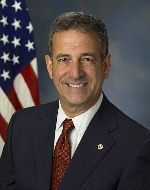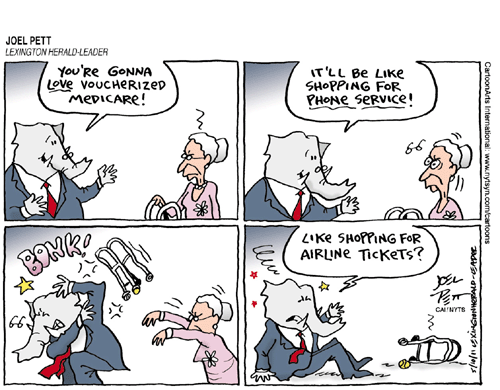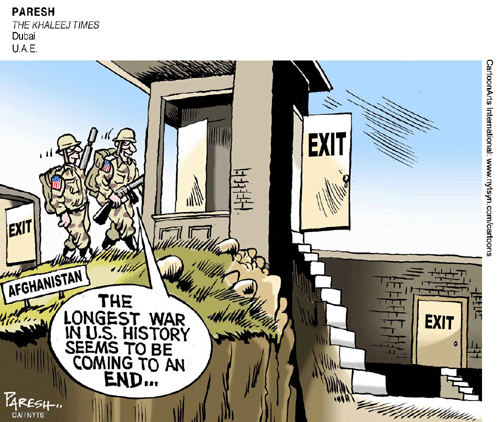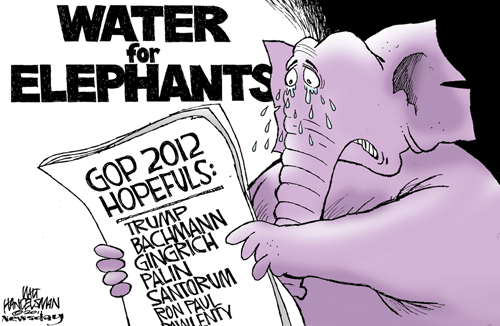 The arrest of IMF President Dominique Strauss-Kahn in New York City on sexual assault charges puts on interesting twist on the French Presidential Elections. He is finished as head of the IMF and most certainly washed up with politics in France whether he is acquitted of these charges or not. The French like their sex but not necessarily on the front page of every newspaper around the world. This leaves a gaping hole for the Socialist Party (Parti Socialiste) of whom M. Strauss-Kahn, known as DSK in France, was the leading candidate and was expected to defeat President Nicholas Sarkozy.
The arrest of IMF President Dominique Strauss-Kahn in New York City on sexual assault charges puts on interesting twist on the French Presidential Elections. He is finished as head of the IMF and most certainly washed up with politics in France whether he is acquitted of these charges or not. The French like their sex but not necessarily on the front page of every newspaper around the world. This leaves a gaping hole for the Socialist Party (Parti Socialiste) of whom M. Strauss-Kahn, known as DSK in France, was the leading candidate and was expected to defeat President Nicholas Sarkozy.
The French Presidential elections are held every 5 years in April, separately from the legislative election for the two chamber Parlement (Parliament). France does not have a two party system but a system where, though many political parties exist, only two parties have a chance of getting elected to major positions. Power, however, usually passes back and forth between the two stablest coalitions representing the left and the right.
Between now and next fall there will be primaries among the opposition parties where there are more than one declared candidate. The Front National’s (FN) primary was held January 11th, electing its president, Marine Le Pen, the youngest daughter of Jean-Marie Le Pen, former president of the FN, to be their candidate. The Parti Socialiste will hold their primary on June 28th with multiple candidates. Pres. Sarkozy, who is backed by Union Pour Un Mouvement Populaire (UMP), already has their endorsement.
The Socialist Party will now have to choose among several likely candidates who may have the popular support to take the Elysée Palace next year. The damage of the DSK affair may weaken the left, and the beneficiary will not be the ruling UMP party. It has been speculated that, both as a political “outsider” and as a woman in politics, Marine Le Pen could gain most from the scandal.
The other “dark horse” to watch is the former First Secretary of the Socialist Party and former partner of Ségolène Royal, François Hollande. In recent weeks, Mr Hollande has made strong gains in polls, with some analysts suggesting he could represent an even greater threat to the UMP president than the IMF boss did when he was popular. DSK’s was seen as an “elitist” whose policies resembled those of Pres. Sarkozy, while M. Hollande is more to the left and very much a “man of the people”. He still faces the primary with the current First Secretary of the Socialist Party, Martine Aubry, President of the Regional Council of Poitou-Charentes, Ségolène Royal (who lost to Sarkozy in 2007), President of the General Council of Saône-et-Loire and MP, Arnaud Montebourg and Essonne MP and Mayor of Évry, Manuel Valls.
I’ve simplified this a bit, the system is not all that complicated. French politics are really not all that different from American politics except that the French, as most Europeans, do not consider their politician’s private lives or religion a factor in considering who would be the best to lead the country. Feel free to ask questions, I’ll answer as best I can.

 As was speculated, Sen. Herb Kohl (D-WI) will
As was speculated, Sen. Herb Kohl (D-WI) will 






Recent Comments